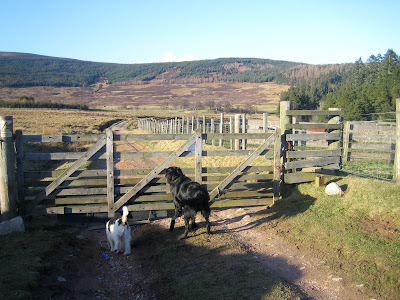Right folks, gosh this has been hard work. Gail has insisted that I present my canine-related climate research as a scientific paper in the proper format: Title, authors, abstract, methods, results and discussion, conclusion, acknowledgements etc.
OK. Let's have a go:
TITLE
New and novel methods for detecting the arrival of Spring: a canine perspective
(Yes Bertie, that's very good, now the authors, and don't forget anyone)
ABSTRACT
The consideration of Spring indications involves a parameterisation of
(NO Bertie, it's just supposed to be a summary..)
You never quite know when Spring is going to arrive and it is all very confusing, as you will see. We present some fascinating data on the behaviour of our humans too....
INTRODUCTION
Hi there, I'm Bertie, let me tell you about myself..
(NO Bertie, you're supposed to introduce the topic that you've been researching!)
Almost all human scientists say that, due to increased concentrations of greenhouse gases in the atmosphere, the Earth is getting warmer and in many parts the the word Spring is coming sooner. In this paper, we consider the issue of how, from a canine perspective, one detects the arrival of Spring, and whether things are changing.
METHODS
I just asked all my pals, and analysed the responses.
(Well Bertie, it doesn't sound very scientific, but I guess it's what you did).
RESULTS AND DISCUSSION
First I would like to point out that most of my respondents ignored the bit about whether Spring is coming earlier or not and just concentrated on how you know that Winter is over.
The initial impression one gains from the data is an alarming picture of dog-blogging 'Mums' casting off their cold weather clothing with gay abandon. Hats, gloves, jackets, wellies, shoes, socks, I did begin to wonder where it would all end. Perhaps predictions for the impact of global warming should contain warnings about lots of middle aged ladies taking their dogs for early morning walks to the park in their underwear. That would be a truly terrifying scenario (especially as so many of them, particularly in the USA, also suffer from Spring allergies).....
Analysing the data in more detail, one notices that whereas humans have focussed on temperature measurements and visual data (flowers blossoming etc.), us dogs pay more attention to sounds and smells. Many of you, rather poetically, provided data on the tweeting of newly returned birds, the baa-ing of lambs, frogs making a 'racket' and the scent of sea air, jasmine, orange blossoms and the like.
In some respects, one feels that the data was more revealing of the diverse lifestyles of my friends than of changes in weather patterns. It is interesting to discover, for example, that in South Africa the need to put chemicals in the swimming pool is paramount and in Boston Spring is detected by the departure of the Red Sox team truck to Florida. It came as no surprise that George's contribution concerned the first day when one could sit outside at the pub in Shropshire, and Asta welcomed a new season of al fwesco dining in Greenwich Village...
(Bertie, I suggested you stop rambling on and provide some concrete data - a graph perhaps - or else you will never get this published).
My data came from a wide geographical area, as you can see from the graph below:
Finally, it is worth noting that those few of you who actually bothered to address the issue of whether Spring is nowadays earlier or later or changing in any way (well done Toby and Lola) suggested that the difference is that the climate is becoming more extreme.
CONCLUSIONS
This has all been most taxing and I am now going to take a holiday
(NO BERTIE!!!!)
The arrival of Spring is a very interesting subject and many valuable new insights were gained from investigating the hitherto neglected perspective of 'dogs with blogs'.
Thank you to all who participated, and especially to Gail who provided help with the graph. Also I would like to thank in advance the editors of the prestigious journals 'Nature' and 'Science', who will surely soon be battling with each other for the honour of publishing this ground breaking study.

























































